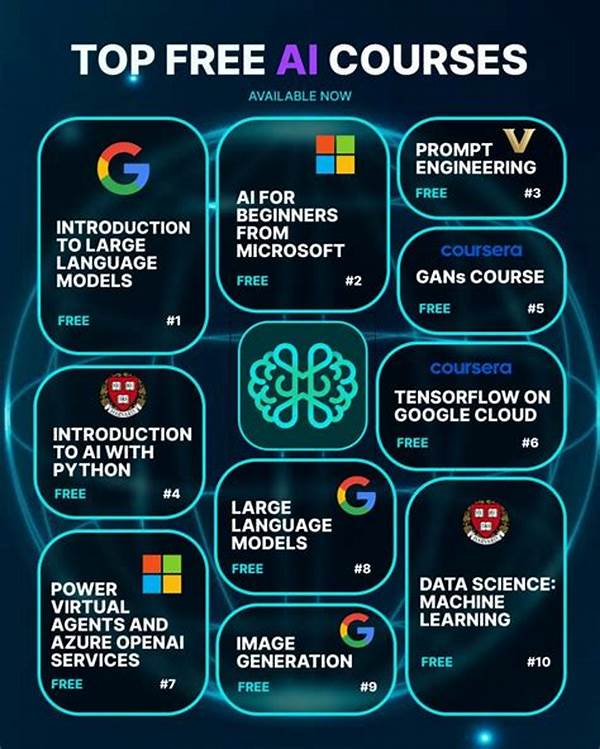I’m happy to help guide you on how to create content about “The Role of AI in Online Course Development.” Let’s break this down into parts as you’ve requested:
Read More : Tambakbet Explores How Adaptive Learning Is Reshaping Study Paths
Article – The Role of AI in Online Course Development
Introduction:
In the digital age, the education sector has embraced technology as its catalyst for evolution. Among the towering innovations steering this advancement is Artificial Intelligence (AI), a game-changer that has not only transformed traditional learning but has also carved out new paths in online course development. The allure of AI in education lies in its capability to personalize learning experiences, enhance engagement, and streamline administrative tasks. As we journey through this article, we will uncover the potent role AI plays in shaping online courses, its benefits, and why educational institutions worldwide are investing in this technology with a fierce enthusiasm. The growing trend is not just a testament to tech’s inevitable march forward but also indicates AI’s profound impact on educational paradigms—one that promises a tailored, efficient, and engaging learning landscape.
Paragraph 1:
AI’s dawn in online course development has been nothing short of revolutionary. By analyzing vast datasets, AI algorithms can predict student behavior, tailor courses to individual needs, and offer real-time feedback. Imagine an online platform that instantly adapitates to your learning style and pace—sounds futuristic, right? But this is the present reality with AI at the helm.
Paragraph 2:
The role of AI in online course development extends beyond adaptability. It also makes learning more accessible. Through language translation tools and automated speech recognition, AI bridges gaps, offering inclusive education to students worldwide regardless of language barriers. The virtual classroom is now a universal space, thanks to AI’s robust functionalities.
Paragraph 3:
One cannot overlook the administrative benefits AI brings to the table. It automates mundane tasks such as grading and attendance tracking, allowing educators to focus on teaching rather than bureaucracy. This efficiency not only enhances productivity but also enriches the educator-student interaction as teachers have more time for direct engagement.
Paragraph 4:
In embracing AI, we are witnessing a paradigm shift. Online courses are evolving into dynamic ecosystems with AI making them more interactive and engaging through gamified learning experiences and virtual reality. The role of AI in online course development is expanding rapidly, laying the foundation for an educational future that is as captivating as it is informative.
AI’s Impact on Course Personalization
Introduction:
Personalization in education is no longer a distant goal; it is the present and future, especially with AI steering online course development. AI’s contribution to personalizing learning experiences marks a seismic shift in education methodologies. It’s akin to having an academic mentor crafting a bespoke educational journey for each student, rather than a one-size-fits-all approach.
Paragraph 1:
Imagine a classroom where every student’s needs are catered to individually. With AI, this vision turns into reality. AI analyzes learning patterns, preferences, and progress to adjust course material accordingly. It’s a personalized tutor available around-the-clock.
Paragraph 2 & H2:AI’s Role in Customizing Educational Paths
Through complex algorithms, AI transforms data into actionable insights that aid educators in designing customized learning modules. Every interaction, click, and quiz becomes data feeding into a system that molds the educational journey, ensuring no student is left behind.
Paragraph 3:
Yet, personalization is just one facet of AI’s magic in education. It influences motivation and engagement through adaptive learning techniques that maintain students’ interest and attention. This dynamic approach fosters an educational environment where students not only learn but thrive.
H3:AI and Real-Time Feedback Technologies
Real-time feedback is another jewel in AI’s crown, advancing the online learning experience. By providing instantaneous evaluations and suggestions, AI ensures that students can correct their course without delay, offering a progression pathway that is both effective and efficient.
Paragraph 4 & 5:
Feedback, once a bottleneck, has been redefined by AI into a constant loop of information exchange between student and educator. This technological marvel, enriched by AI, not only highlights areas of improvement but celebrates student achievements, thus boosting confidence and fostering a love for learning.
Summaries Related to the Role of AI in Online Course Development
Structure and Explanation
The evolution of online courses with AI is reshaping education, offering personalized experiences like never before. The role of AI is central to this transformation, marked by its capacity to adapt to individual learner’s needs, thus creating tailored educational pathways. This advancement aligns with today’s fast-paced world, demanding efficiency and effectiveness in learning methodologies.
Moreover, AI’s function in online courses goes beyond mere adaptation and customization. It enhances accessibility, enabling a global classroom where language is no longer a barrier. This transformative ability showcases AI’s prowess in curating an inclusive learning environment. Such strides in education underscore AI’s potential in reducing educational inequities and promoting lifelong learning.
AI’s Role in Engagement and Retention
Paragraph 1:
Engagement remains a perpetual challenge in online learning environments. The role of AI in online course development is pivotal in addressing this. With features like interactive quizzes and scenario-based learning, AI maintains students’ focus, turning learning into an exploit rather than a chore.
Paragraph 2:
Retention rates benefit from AI’s adaptive techniques. By keeping lessons relevant and appropriately challenging, AI sustains student interest, a crucial factor in retaining learners. This relevance is maintained through complex algorithms that adjust content dynamically.
Paragraph 3:
The Choose-Your-Adventure style of learning powered by AI puts students in command of their educational journey. This autonomy fosters a sense of ownership and accountability, driving engagement and retention rates.
Paragraph 4:
Gamification elements, enhanced with AI’s capabilities, infuse a fun aspect into learning. With reward systems and leaderboards, the competitive element enhances motivation, an essential ingredient in effective learning experiences.
Paragraph 5:
Through these advanced techniques, AI ensures students are not passive recipients of information but active participants in their education, fostering an environment ripe for curiosity, exploration, and discovery.
H2:AI-Driven InteractivityH3:Game-Based Learning in AI-Powered Courses
Illustrations of AI’s Role in Online Course Development
Description:
AI’s integration into online courses is heralding new ways of learning and teaching. This influence is seen in multiple areas, from personalized student plans to predictive analytics that forecast academic challenges. These advancements not only optimize learning but also make it more accessible and engaging. AI-powered virtual tutors and interactive simulations create immersive experiences, turning abstract concepts into tangible learnings. Additionally, gamification strategies employed by AI infuse joy into learning, sustaining student interest and promoting higher retention rates.
Article and Content Creation
To effectively utilize the role of AI in online course development, creators need to focus on crafting content that appeals not only to the rational mind but also to emotional engagement. This involves employing storytelling elements that align with learner experiences, utilizing AI to constantly refine and adapt course material. By leveraging AI’s capabilities, educational content becomes more than just knowledge dissemination—it transforms into an experience that encourages lifelong learning. Through AI, the educational sector stands at the brink of a revolution, poised to redefine the boundaries of learning in unprecedented ways.
This comprehensive guide showcases the multifaceted role of AI in online course development, offering insights into its numerous applications and benefits. Whether it’s through personalization, engagement, or assessment, AI is undeniably the linchpin in the evolution of digital education.


